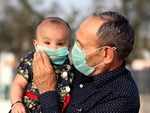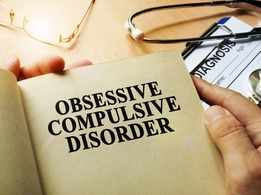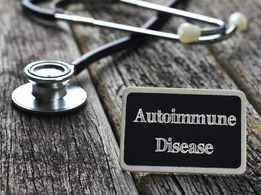01/7Are you at a higher risk for developing post COVID symptoms?
)

After COVID-19 symptoms, battling post COVID syndrome is the newest difficulty which is plaguing patients even after recovery.
From symptoms which resemble acute exhaustion, fatigue, lingering cough, breathlessness to more critical cardiac and lung scarring, post COVID could strike kids as young as 12.
02/7Why is it concerning?
)

Doctors fear the danger is so bad, even people who make a quick recovery, or do not require hospitalization should be wary of the ill-effects of long COVID.
While there is no accurate detector of ascertaining your COVID risk, some people are said to have a higher likelihood of developing post COVID, just as they do for the infection.
We tell you some of the biggest risk factors which can determine your odds of being a COVID long hauler:
03/7People who have 5 or more symptoms
)

Symptoms in the first week of COVID-19 infection is not just an important factor to determine the severity of your infection, but also calculate your risk of long COVID. According to case studies, most patients who suffer from post COVID syndrome recall having more than 4 or 5 symptoms in the first week of diagnosis.
The study, done by King's College, London on 4000+ recovered patients also ascertained that while it's important to seek symptomatic treatment in time, misdiagnosed, or late testing could also put people at risk.
04/7Women
)

While women have been found to carry higher levels of disease protecting ACE2 receptors than men, interestingly, women may be more likely to be battling COVID symptoms in the long haul.
While the reasons for this could be many, several studies done worldwide have observed that women are likely to suffer from bad symptoms like brain fog, hair loss, fatigue, impaired sense of smell.
Researches out of Italy, which was once the epicentre of disease outbreak also observed that women were more likely to suffer from psychological manifestations, mental illness, stress, insomnia, PTSD and anxiety after recovering from the disease.
Some women may also encounter fertility and menstrual problems months after fighting the difficult virus.
05/7People over the age of 50
)

Age is one of the biggest factors which decides infection severity. It could also be a factor which determines your risk of developing long COVID.
Frail, or diminishing immunity, and the likelihood of developing co-morbidities also consequently slow down the recovery time. Hence, those over 55 can have a longer battle dealing with COVID symptoms, with fatigue, body ache, brain fog and breathlessness being the most common ones.
Degeneration and age-related slow down may also make senior citizens prone to stress, muscle pains and bad quality of life.
06/7Those with pre-existing respiratory problems
)

Breathlessness and lung fibrosis are feared consequences for people who develop COVID complications, or battle post COVID.
It has also been noted that people who battle respiratory conditions like asthma, COPD, lung or breathing problems are at a higher risk of developing severe lung infections and other related post COVID symptoms than people with other pre-existing health problems.
It could also be for the same reason that breathlessness and persisting cough, cold remain to be commonly reported post COVID symptoms for many.
07/7Obesity
)

Obesity and high BMI levels increase inflammation in the body, induce stress and slow down metabolism. For many, it could also mean an increased risk of developing health problems like diabetes and high blood pressure. Now, research indicates that obesity could also be a risk factor for developing post COVID, be it young or old.
Excessive weight gain can also prolong recovery timelines, make a person experience shortness of breath and make people experience lingering symptoms for months at a stretch.
Hence, obesity and weight gain, much like other health problems should never be ignored and controlled by following a good diet and lifestyle modifications.










































































![[New!] Level 4 - 30 minute tempo fat-burning!
[New!] Level 4 - 30 minute tempo fat-burning!](https://static.toiimg.com/thumb/79327298.cms?width=147&height=86)












closecomments
SIGN IN WITH
FacebookGoogleEmail